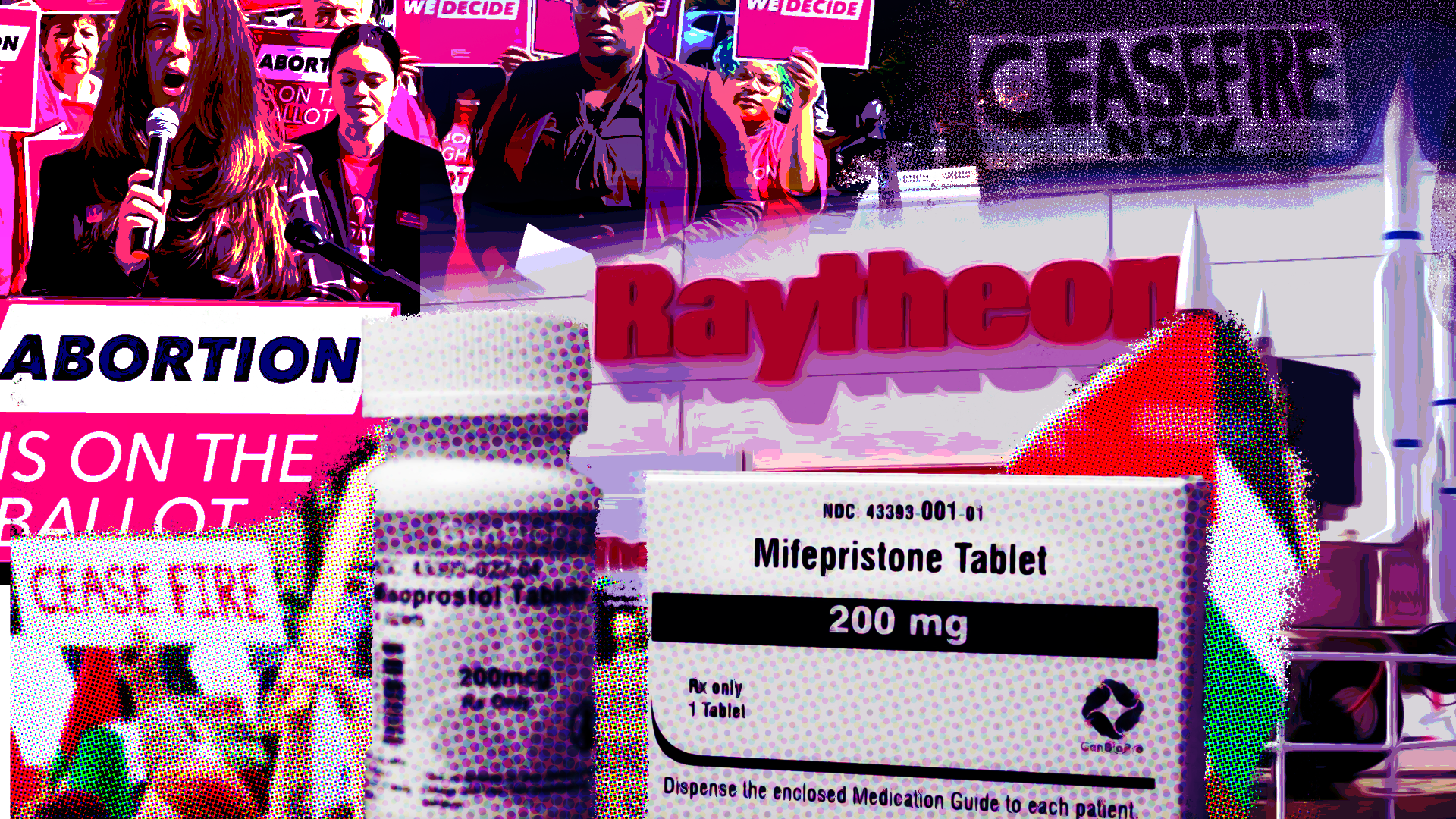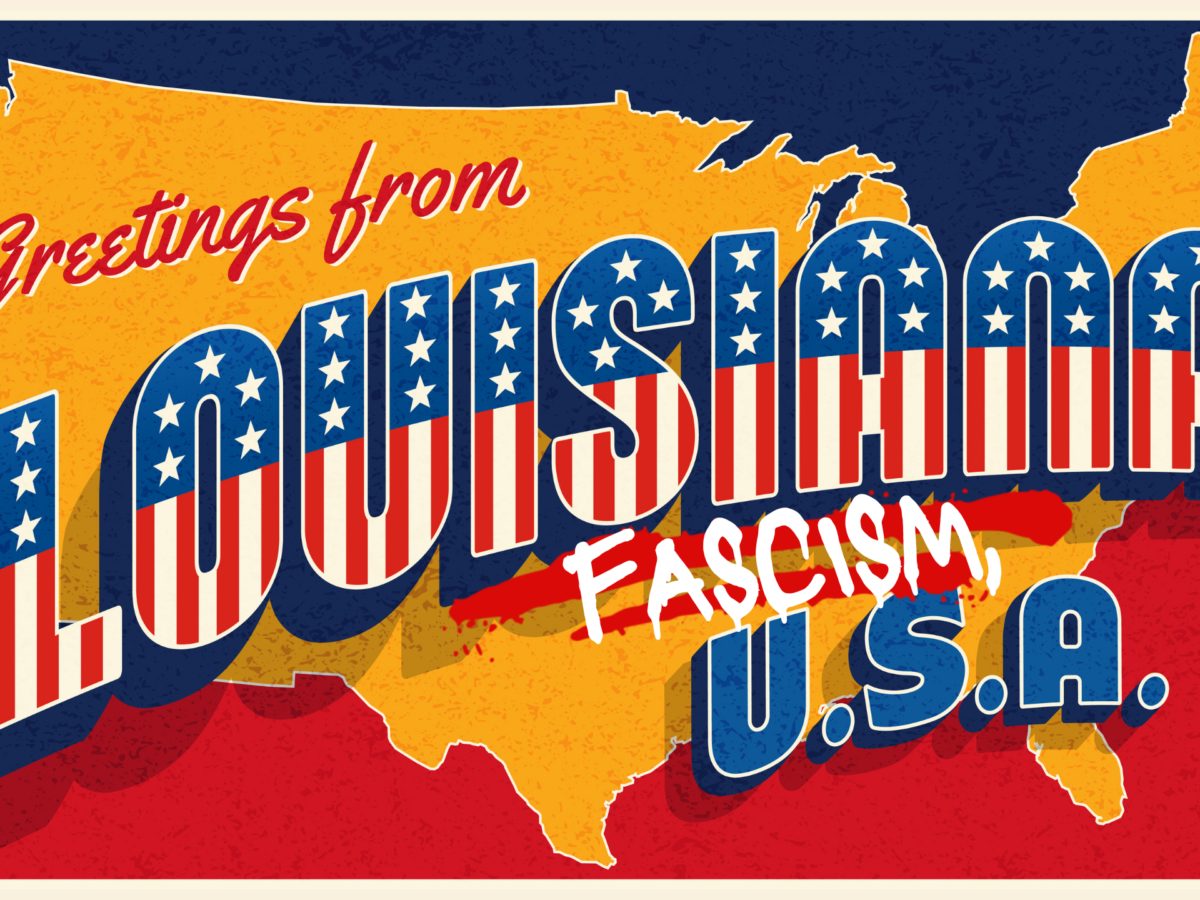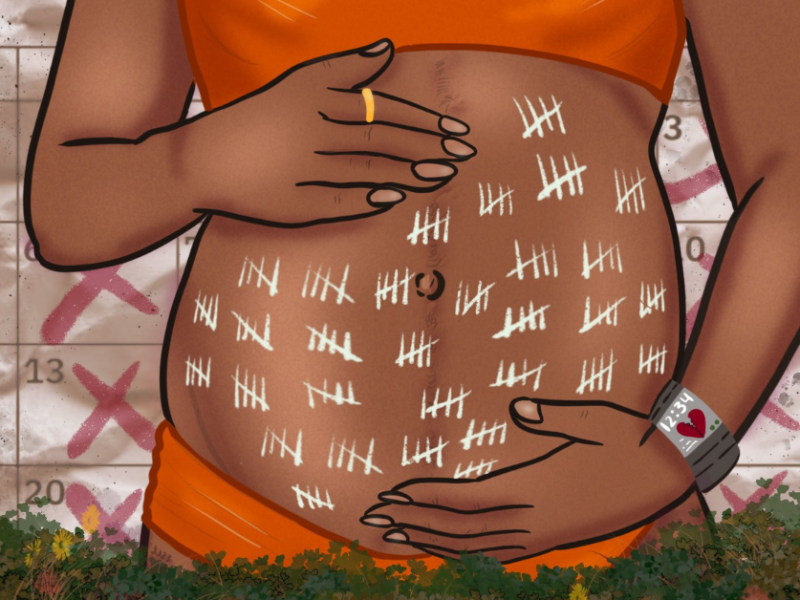This essay discusses miscarriage, abortion, and other contingencies faced by the Reproductive Justice community.
In May 2024, the Louisiana State Legislature passed Senate Bill 276 (SB276), which amends Louisiana's near-total abortion ban to, among other truly depraved things, classify the drugs misoprostol and mifepristone as Schedule IV controlled substances according to the Louisiana Uniform Controlled Dangerous Substances Law. This policy went into effect Oct. 1, 2024.
Misoprostol and mifepristone are two kinds of medications widely used in pill form to safely and effectively either induce or support the loss of pregnancy. The distinction made between a miscarriage and an abortion is not a medical one; it is a socio-political one enshrined in law both to compensate for what it lacks in medical legitimacy and to criminalize people seeking and providing abortions. Whether an individual's pregnancy ends completely on its own, is terminated due to medical necessity to prevent death, or because that individual simply desires to end that pregnancy, misoprostol and mifepristone are used in the same way during abortion as they are during miscarriage.
Signed by Louisiana governor Jeff Landry on May 24, 2024, SB276 is a first-of-its-kind law that comes less than three months after the Supreme Court of the United States heard oral arguments in Food and Drug Administration v. Alliance for Hippocratic Medicine and Danco Laboratories v. Alliance for Hippocratic Medicine, two cases brought by a notorious network of far-right, anti-abortion extremists that sought to challenge the legality of medication abortion.
Underlying the Alliance for Hippocratic Medicine's arguments is their claim that the use of mifepristone to manage pregnancy loss is unsafe, despite extensive evidence to the contrary. According to the Guttmacher Institute, mifepristone is currently approved for use in 96 countries throughout the world and, when used with misoprostol, is recommended by the World Health Organization as a safe and effective method of managing pregnancy loss. Mifepristone was first approved in the United States in September 2000 under the standards outlined in the Federal Food, Drug, and Cosmetic Act. Over half of abortions that take place in the United States are medication abortions, or abortions that utilize mifepristone and misoprostol together or misoprostol on its own.
Still, the Alliance for Hippocratic Medicine argues that the Food and Drug Administration (FDA) failed to properly approve the use of mifepristone for pregnancy loss and now seeks to remove mifepristone from the market altogether.
The Alliance for Hippocratic Medicine and the Louisiana State Legislature are no doubt emboldened by the Supreme Court's decision in Dobbs v. Jackson Women's Health Organization, in which it overturned two landmark abortion rights cases and ruled that the Constitution of the United States does not confer a right to abortion. As I wrote last year for TruthOut, this is not the only evidence that anti-abortion extremists never intended to stop at Dobbs. For them, Dobbs is their floor and Roe is merely the rug they pulled out from underneath our feet. Although the Alliance for Hippocratic Medicine was unsuccessful in removing mifepristone from the market this term, the anti-abortion organization will surely try again.
Louisiana is the blueprint for further fascist repression
This piece is part of our As the South Votes series. 2024 is an election year that marks the culmination of nearly four years of rapidly expanding repressive fascist state apparatus. This election season, our region continues to be the nation's testing ground for the censorship, policing, and access barriers that define post-2020 reality. Louisiana…
The Limits of the Repro Justice Movement's Response
In anticipation of the Supreme Court's reversal of Roe v. Wade—and of the immediate restrictions on abortion access that the decision would trigger in states across the country—several leading organizations with a stated commitment to the principles of Reproductive Justice took steps to meet the high influx of legal needs emerging from abortion and other pregnancy outcome-related criminalization. Since 2021, the Repro Legal Defense Fund, building on the work of organizations like the Center for Pregnancy Justice, has been providing pre-trial support and funding holistic defense for people criminalized for their pregnancy outcomes. The Repro Legal Helpline is another resource for people who may have questions about the legality of various reproductive healthcare services and for pregnant people and their support network, including their attorneys, who may need legal resources during an investigation, after arrest, or at other points during State intervention in their reproductive decision-making.
In recent years, more and more organizations with a stated commitment to reproductive health, rights, and justice have come to publicly acknowledge criminalization as reproductive violence as well as the fact that this form of reproductive violence disproportionately impacts working-class and poor people living in the South. Several prominent reproductive health, rights, and justice organizations, including Spark Reproductive Justice Now and SisterSong Women of Color Reproductive Justice Collective, have publicly supported the movement to #StopCopCity.
However, there's been a noticeable silence from prominent reproductive rights, health, and justice organizations on many of these same activists' demands to end the Georgia International Law Enforcement Exchange (GILEE) Program, one of many long-standing partnerships between the Israeli regime and state and local law enforcement agencies in the United States. In a statement issued on May 22, 2023, Black Alliance for Peace – Atlanta writes of the GILEE Program:
"As an empire conceived in settler-colonial violence, the United States continues to impose systems of militarized control upon African/Black, Indigenous, and Palestinian communities. This oppressive reality manifests itself through international interventions, such as the GILEE program, as well as domestic initiatives, like the proposed $90 million police-training facility, Cop City. Local residents and activists have been demanding an end to GILEE for many years.
GILEE's training exchange with the Israeli Occupying Forces disrespectfully falls during the 75th anniversary of the Nakba, the violent displacement of more than 750,000 Palestinians during the 1948 invasion of Palestine by Zionist settlers, an event marked by the bloody, brutal, destructive ethnic cleansing and occupation of more than 500 Palestinian villages. This violent occupation continues today with the complete and unwavering support from the United States military-industrial-complex, particularly in military assistance."
The lack of public support from reproductive health, rights, and justice organizations to end GILEE and similar programs across the US is not an oversight on their part. Like many nonprofit organizations primarily funded through public and private philanthropy, the silence of reproductive health, rights, and justice organizations on any issue is at least partially tied to the political interests of the philanthropic contributions that make up their funding stream. For years, and more recently, tensions have been rising regarding mainstream organizations' lack of radical, critical analysis of imperialism, global racial capitalism, and the role of international human rights law and legal frameworks in maintaining both.
Tensions increased in February 2024 following an announcement that Saie Beauty would host SisterSong Executive Director Monica Simpson, candidate for the Tennessee House Allie Philips, and Shelly Oria, who previously served in the Israeli Occupation Force ("IOF") at a pop-up event in New York City for the Saie Every Body Campaign. The Saie Every Body Campaign claims to unite more than 60 beauty brands in support of reproductive justice for all. In 2022, immediately following the repeal of Roe, the campaign raised nearly $170,000 for SisterSong. Believing that this was the explanation for SisterSong's noticeable silence as the genocide in Palestine raged on, reproductive justice advocates expressed justified outrage.
Then, on Feb. 26, three now former members of the SisterSong Board made their letter of resignation from the Board public.
"It is with great sadness that we resign from our position as board members of SisterSong Women of Color Reproductive Justice Collective, effective immediately, due to SisterSong's silence on Palestine for the past 140+ days. In the case of Palestine more than any issue in the world, silence equates to complicity.
…At a time when a live streamed genocide funded by US dollars is unfolding on the world stage, SisterSong's continued reticence (despite numerous requests from the board) to take public action is deeply removed from the global and human rights framework that the Reproductive Justice movement was founded upon decades ago."
Only after this statement was made public did SisterSong finally share a deeply disappointing statement to its social media about the US-backed genocide in Palestine. Many, including myself, expressed their disappointment but lack of surprise at the statement, especially since word had spread regarding their relationship with Saie Beauty and the pop-up event featuring a former IOF soldier.
Tensions have seemingly reached another boiling point after Prism reported on Planned Parenthood's contracts with weapons manufacturer Raytheon. As the article predicted, many in the movement were shocked to learn that, according to an internal Planned Parenthood document, Planned Parenthood had financial ties to the weapons manufacturer for various digital security and other security services as recently as last year. Outraged Planned Parenthood employees, volunteers, patients, and others have responded with a unified demand for divestment.
Quiet as it is kept, many in the reproductive justice movement and its intersecting justice movements have also grown tired of the organizations who have tried to evade public scrutiny and funding loss, by attempting to "discreetly" support Palestine. These are the organizations that, instead of making unambiguous, public-facing statements in support of Palestinians and the Palestinian solidarity movement's actions or offering to materially support this organizing by providing legal services or financial resources, instead limit their public alignment with the cause to minimal actions like sharing supportive Instagram story posts, which expire after 24 hours.
The struggles for a free Palestine and bodily autonomy are deeply intertwined. What reproductive health, rights, and justice organizations are unwilling to risk in solidarity with Palestine mirrors the limitations within their movement that inhibit their solidarity with all people seeking abortion care, and those who support them, as anti-abortion criminalization escalates across the country. At this time, the level of solidarity demanded of these organizations is one that fully accepts the risk of criminalization and funding loss, as it requires organizations to directly, fiercely, and unapologetically embrace their association with being anti-state dissenters who demand a true end to the forces of genocide and repression that deny people around the globe their right to bodily autonomy.
Abortion bans and pregnancy surveillance: The body itself as a prison
The Supreme Court ruling in Dobbs v. Jackson was a disaster for abortion and health care in the South.…
Keep readingAs much as reproductive health, rights, and justice organizations are willing to acknowledge that the criminalization we see today is not entirely new, much of the legal and policy arms of the US reproductive justice movement are still constrained by their fears of criminality and the levels of discreditation that comes with their work being identified as "criminal."
The legal and policy infrastructure simply does not exist to prevent every single person seeking an abortion or supporting someone seeking an abortion from engaging in criminalized activity and becoming a criminal. Yet, organizations committed to doing so continue to emphasize the need to make people seeking or supporting people seeking abortions exceptional and distinct from "common" criminals. Criminality is socially constructed rather than natural or static, so this is a fool's errand. Our approach to this work as legal and policy advocates must be to intervene to mitigate the severity of the consequences of criminalization rather than to preserve the subjective purity ascribed to people seeking and supporting people seeking abortions. It is not shocking that this movement has this problem given the long-standing framing of abortion as a "white woman's issue." Abortion and gender-affirming hormone therapy appear to be the final frontier in the nation's Drug War, and reproductive health, rights, and justice organizations lack the radical political vision necessary to join the ranks of the grassroots movements that have been on the frontlines of this battle longer than white and white-aspiring cisgender women have feared becoming criminals for their reproductive health decisions.
It is why the only impactful defenses of Palestinian solidarity organizing have been limited to the actions taking place on university campuses—organizing that despite public outrage, is still ultimately deemed peaceful and within the parameters of the First Amendment; it is the type of organizing that cannot possibly justify police brutality, mass arrests, academic sanctions, and the rescinding of job offers.
It is why growing criticism of the family policing system by reproductive health, rights, and justice organizational leaders continues to center racial and class disparities—framing the solution as narrowing legal definitions of child abuse and child neglect and avoiding the reality that the State should not regulate "the family" and should not have the authority to determine who is and is not a suitable parent or to separate families based on such determinations at all.
It is why reproductive health, rights, and justice organizations continue to be baited into the discourse surrounding the anti-abortion movement's caricature of the hypothetical woman who "pops Plan Bs like candy" and allegedly "uses abortion as her primary method of birth control." And if that hypothetical woman is a real woman who is as Black, poor, ratchet, and steeped in baby daddy drama as the far-right imagines her, does she then become the limit to exceptionalism? If so, then does this empower the not-so-hypothetical anti-abortion State to impose criminal or civil sanctions for people who exercise their bodily autonomy after a certain number of abortions? After a certain number of pregnancy scares?
The door is always, always, always left open for the people who are deemed to deserve the force of violence—the common criminal, the soon-to-be criminal, or the loved one of someone deemed to be responsible for the birth of criminals.
And yes, there are very legitimate legal restrictions on the activities of recognized nonprofit organizations that they must abide by given how far-reaching the impacts of funding loss and deplatforming would be for their supporter bases, employees, and their families. Nonprofits cannot violate the law and maintain their nonprofit status, yet what is being asked of nonprofit organizations—making public, anti-zionist statements, offering direct legal assistance to solidarity-movement protesters, and redirecting financial resources directly to abortion seekers—nowhere near scratches the surface of the "unlawful conduct" required to support those the movement fights for. This excuse attempts to enforce limitations imposed on nonprofits by their funding sources and their relationships with elected officials onto the movement as a whole.
There is also no promise that what is lawful today will be lawful tomorrow. Look around. The law is whatever the State says it is, whenever it says it is, and implicates whoever it chooses to be punished for violating it. Nonprofit leadership might remain comfortable and complicit with their organizations' silence, but they too face no guarantee of their personal safety nor their organization's sustainability in this political climate, whether or not they take a stance. In attempting to distance themselves from "criminality," maybe reproductive health, rights, and justice organizations genuinely believe that there is a barrier of safety standing in the way of their facing similar prosecutions as the #StopCopCity organizers facing RICO charges and bail fund bans in Atlanta. There is, after all, only a legal difference between a bail fund and a criminal defense fund until a legislature or a court says otherwise.
If we as a movement are going to stand 10 toes down when it comes to abortion access, then we cannot be squeamish about Palestine, Cop City, or any other global struggles against genocide and fascism. We must not accept limitations imposed on our work by our funding streams. We cannot pretend that the most critical components of this work will always be sexy and well-funded.
How much do you think those of us who are the reason abortions continue in the South are paid? We do not overwhelmingly speak from a position of economic privilege—where this labor is done because we are not worried about how the rent will be paid, where the next meal will come from, or if none of that even matters because the police are at our door. Some of us do enjoy these privileges, but there are far more of us in this movement with our arms outstretched to catch the people nonprofits abandon the moment the grant application is accepted, regardless of what tomorrow may bring.
It is no secret that many of the people who work within nonprofit organizations are not values-aligned with their organization's leadership or its funders. But have we as a movement fully grappled with what that means?
Big name reproductive health, rights, and justice organizations, including Planned Parenthood, the Center for Reproductive Rights, and the National Women's Law Center, recently announced Abortion Access Now, "a national 10-year campaign that will both prepare policies for the next time Democrats control the House, Senate and White House, and build support for those policies among lawmakers and the public." Apart from the fact that "Abortion Access Not Now" would be a more fitting name for the coalition, not a single abortion fund or independent clinic in the United States is a member of this coalition. The campaign also comes at a time when financial sustainability is being weaponized against current and former repro workers who demand that big name reproductive health, rights, and justice organizations take a strong, anti-zionist position. There's seemingly not enough money to oppose genocide, but there are hundreds of millions of dollars for a 10-year-long strategy targeting a political party whose most recent leader, President Joe Biden, still struggles to even say the word abortion.
The criminalized and surveilled are the only ones who understand how high the stakes are as progressives campaign on an issue they have done little or nothing to prevent or resolve, and that, word to Assata, we really do have nothing to lose but our chains.



